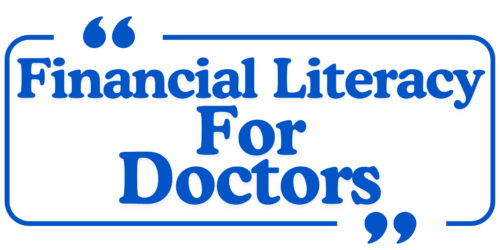As a doctor, managing finances can be uniquely challenging. Between medical school debt, high income potential, tax considerations, and retirement planning, there’s a lot to handle. For these reasons, many doctors consider hiring a financial advisor. However, like any professional relationship, working with a financial advisor has its benefits and drawbacks. Here’s a look at the pros and cons to help determine whether hiring a financial advisor is the right choice for you.
Pros of Hiring a Financial Advisor
1. Expertise in Complex Financial Matters
Financial advisors bring specialized knowledge in areas that can be complex and time-consuming to navigate independently. They have training in investments, tax planning, and estate planning, which can be especially useful for high-income professionals. Advisors with experience working with doctors are aware of unique challenges, such as managing medical school debt, high tax liabilities, and varying income streams from different sources.
2. Comprehensive Financial Planning
A financial advisor can offer a holistic financial plan, integrating retirement, tax strategies, investments, insurance needs, and even estate planning. This comprehensive approach ensures that all areas of your finances are covered, helping you achieve short- and long-term financial goals.
3. Saves Time
Doctors are often busy with long hours, on-call shifts, and professional demands that leave little time for detailed financial planning. A financial advisor can take the weight off by managing your portfolio, handling tax strategies, and preparing for retirement so you can focus on your practice and work-life balance.
4. Access to Resources and Financial Products
Financial advisors have access to resources and investment opportunities that might not be available to individual investors. They can help diversify your portfolio and leverage tools that might improve your financial situation. Advisors can also provide access to institutional investments, insurance policies, and tax-advantaged accounts that can add value to your financial plan.
5. Strategic Debt Management
Many doctors finish medical school with significant debt. An advisor experienced with physician clients understands this reality and can provide strategies to pay down student loans, manage cash flow, and make the debt more manageable while still pursuing other financial goals.
6. Objective Decision-Making
An advisor can offer an objective perspective, which can be especially valuable during market fluctuations or life changes. Having someone to help avoid impulsive decisions and stay on track with your goals can provide peace of mind and lead to better long-term outcomes.
7. Tax Efficiency
Physicians often face higher tax brackets, making tax-efficient investment and income strategies critical. A knowledgeable financial advisor can provide ways to optimize your tax situation, including retirement account contributions, tax-loss harvesting, and strategic charitable donations, which can significantly impact your overall wealth.
Cons of Hiring a Financial Advisor
1. Cost
One of the primary drawbacks of hiring a financial advisor is the cost. Advisors generally charge a fee for their services, either as a percentage of assets under management (AUM), a flat fee, or an hourly rate. For doctors just starting their careers, these fees can be a significant expense, especially if they are already managing debt and other financial obligations.
2. Potential for Conflicts of Interest
Not all financial advisors have the same fiduciary duty to act in their clients’ best interests. Advisors who earn commissions from selling specific financial products may have an incentive to recommend products that benefit them financially, even if they’re not the best fit for the client. To avoid this, look for a fee-only advisor who operates as a fiduciary.
3. Loss of Control
Some doctors may feel a loss of control over their finances when hiring an advisor. While advisors offer valuable guidance, doctors accustomed to making their own decisions might struggle to relinquish control, especially when it comes to investments. Ensuring clear communication with an advisor can help maintain a level of control over the most important financial decisions.
4. Variable Quality of Advisors
The quality and expertise of financial advisors can vary greatly. Some advisors specialize in physician finances, while others might lack the specific expertise necessary for doctors. This makes it crucial to vet potential advisors carefully, as choosing the wrong advisor could lead to suboptimal financial strategies or even poor financial decisions.
5. Limited Market Performance Guarantees
While advisors can help build and manage investment portfolios, they cannot guarantee market performance. Investments come with inherent risks, and the presence of an advisor does not eliminate them. If your primary reason for hiring an advisor is to outperform the market, it’s important to remember that they, too, are subject to market conditions.
6. Commitment Requirements
Building a relationship with a financial advisor requires trust, communication, and sometimes long-term commitment. It’s also a financial commitment, as the advisor’s fees will need to be part of your budget. If you’re not ready to make a long-term commitment to an advisor, it may be better to handle finances independently or seek limited, project-based advice.
7. Possibility of Advisor Turnover
Many financial advisory firms experience turnover, meaning the advisor you start with may not be with the firm long-term. If this happens, you may need to start building trust and rapport with a new advisor, which can disrupt your financial planning.
Is Hiring a Financial Advisor Worth It?
The decision to hire a financial advisor depends on your financial goals, comfort level with managing finances, and available time. If you’re new to financial planning, struggling with debt management, or too busy to develop and monitor a comprehensive plan, a financial advisor could be an invaluable resource. On the other hand, if you’re confident in managing your finances or prefer to remain fully in control, independent financial management may be the right path.
Doctors face unique financial challenges, and having expert guidance can make a positive impact on your financial future. If you decide to work with a financial advisor, prioritize finding one who understands the healthcare field, is transparent about fees, and, ideally, has a fiduciary duty to act in your best interest.
Written by Pat Brown, MBA
